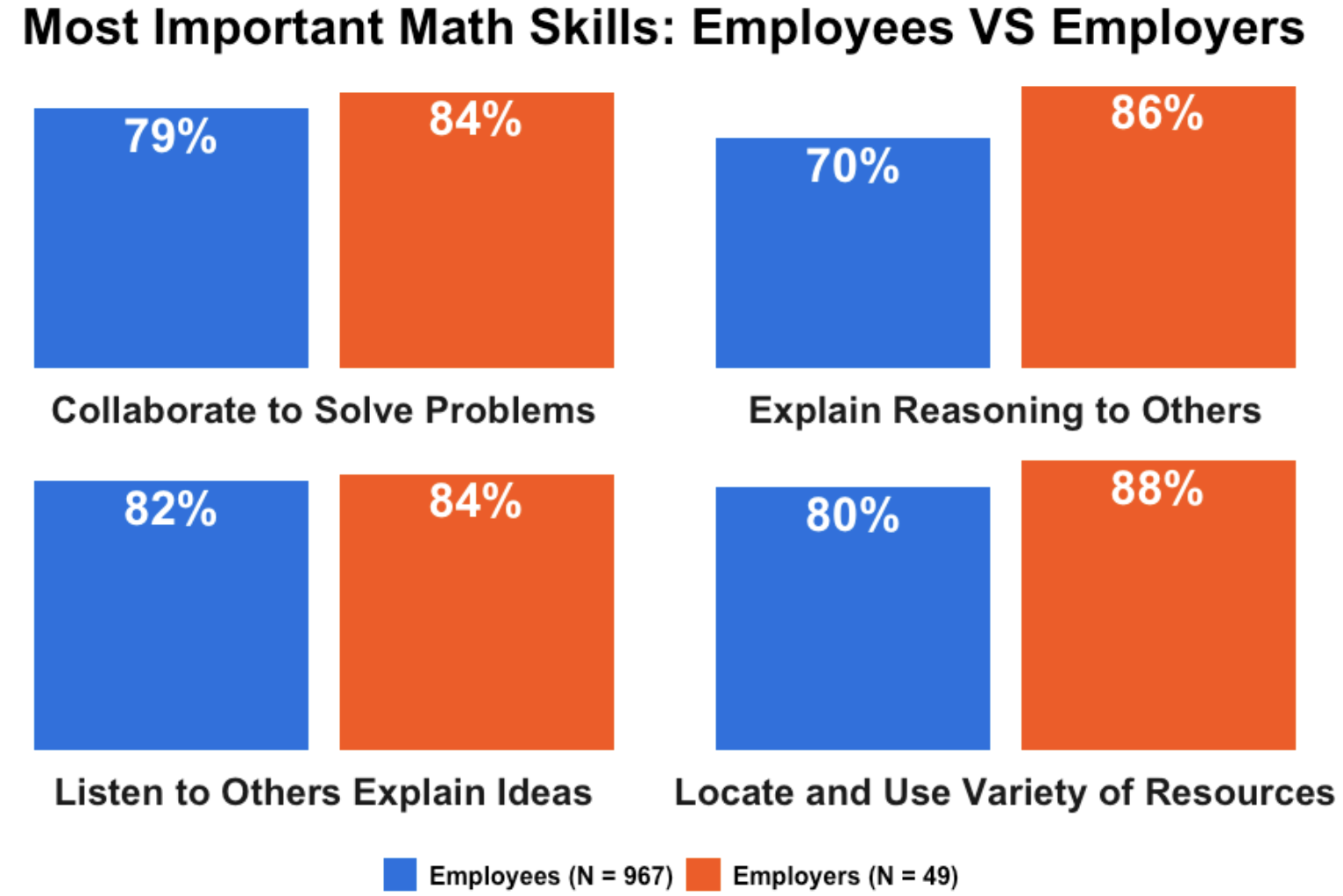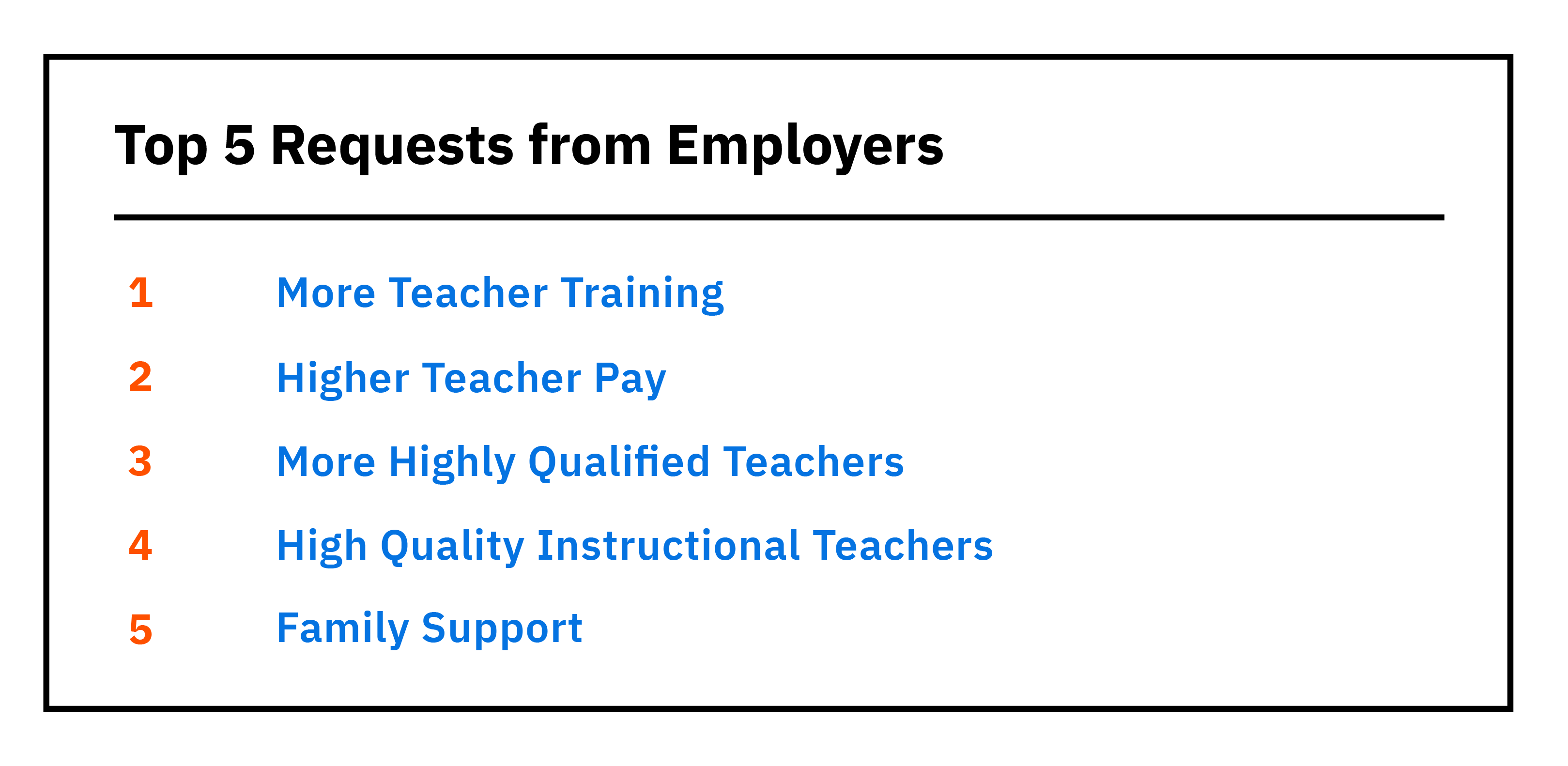
Importance of School Mathematics Beyond High School
Mathematics Listening Tour – Brief Report
In the Fall of 2023, we conducted a listening tour across the state of Florida in an effort to understand the current state of mathematics education. This brief reports on what we learned from a variety of stakeholders about the types of mathematical experiences students need for success beyond high school.
Key Finding: Mathematical Thinking and Reasoning in High Demand for all Careers
Read the full brief report on our key findings and their implications on importance of school mathematics beyond high school.
Read our Landscape Analysis on mathematics education in the State of Florida.
Surveyed Florida employers and business leaders more frequently reported certain math skills to be of more importance in the workplace than our surveyed group of employees predicted.
Mathematics in the workplace is not just knowing calculations and procedures. Business leaders listed the math skills of collaborating to solve problems, explaining reasoning to others, listening to others explain their ideas, and locating and using a variety of resources in 86% of interviews.


Industry leaders commonly reported what they’d like to see implemented in mathematics education in Florida to better prepare our students for the workforce.
Most of these requests show a desire for a larger number of high-quality instructors supported by districts and families.
Recommendation: Leverage School-Industry Partnerships
- Encourage businesses to invest in schools through internships or training opportunities
- Communicate with teachers about the needs of the workforce
- Inform students about opportunities after high school and the skills required to be successful
Recommendation: Invest in Comprehensive Mathematics Teacher Support
- Focus on providing a collaborative learning environment with the opportunity to solve real-world problems
- Provide better-quality instructional materials to classrooms
- Increase teacher compensation to improve retention rates of qualified math teachers
- Formalize connections between high schools and the workforce, utilizing technical schools and colleges as the bridge
Recommendation: Invest in Family Resources in Mathematics
- Support families’ ability to help their children practice math with take-home resources
- Foster connection between parent, teacher, and school
- Host math-focused school or community events
